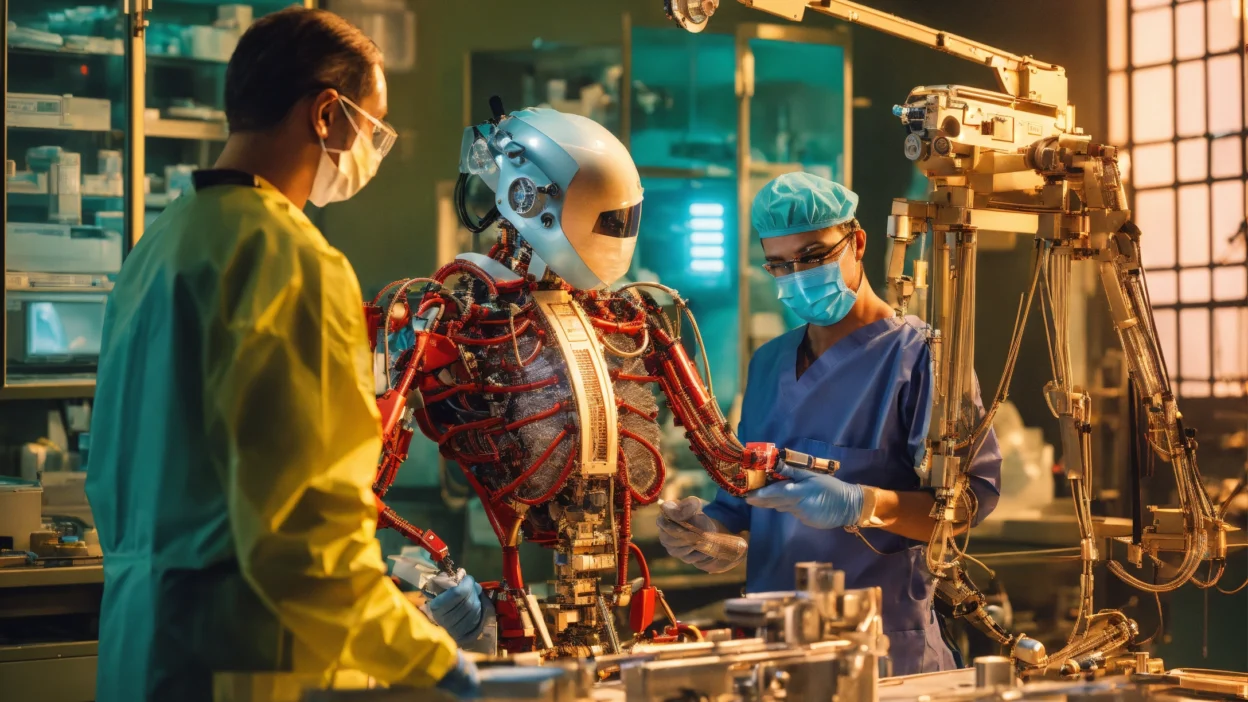The integration of artificial intelligence (AI) into medical diagnosis is transforming the healthcare industry. This groundbreaking fusion not only improves the accuracy of diagnoses but also accelerates treatment, leading to lives saved and reduced healthcare expenses. As AI technology advances, its potential to revolutionize patient care continues to grow, bringing new levels of precision and personalization to medical practice.
Artificial Intelligence and Medical Diagnosis: Impact on Diagnostic Accuracy
AI’s ability to analyze vast amounts of medical data rapidly is one of its most valuable contributions to healthcare. AI algorithms can identify patterns and anomalies in medical images, such as X-rays, MRIs, and CT scans, with remarkable accuracy. These AI systems often match, and sometimes surpass, the diagnostic capabilities of human radiologists. By doing so, they not only help detect conditions that might be missed by the human eye but also speed up the process, ensuring patients receive timely treatment.
Artificial Intelligence and Medical Diagnosis: Revolutionizing Early Disease Detection
Early detection plays a vital role in improving patient outcomes, especially in cases like cancer, where the earlier the diagnosis, the better the chances for successful treatment. AI-powered tools are now capable of spotting early signs of disease long before clinical symptoms appear. For example, AI systems can detect cancerous tumors at their earliest stages, allowing for prompt intervention that can save lives. Furthermore, AI can analyze longitudinal patient data to identify subtle shifts or trends that signal the onset of diseases like diabetes or heart conditions, enabling healthcare providers to intervene proactively.
Artificial Intelligence and Medical Diagnosis: Personalizing Treatment Plans
AI’s role in medical diagnosis extends beyond identifying diseases—it also helps in crafting personalized treatment plans. By analyzing a patient’s unique medical history, genetic information, and previous case studies, AI systems can recommend the most effective treatment strategies. This level of personalization ensures that patients receive the best possible care tailored to their specific needs, leading to improved outcomes and more efficient healthcare delivery. As AI continues to evolve, the precision and effectiveness of these treatment plans will only increase, further enhancing patient care.
Artificial Intelligence and Medical Diagnosis: The Future of Healthcare
In conclusion, the fusion of artificial intelligence with medical diagnosis is a game-changing development in healthcare. It not only enhances diagnostic accuracy but also enables early disease detection and personalized treatments. As technology progresses, AI’s potential to improve patient care grows exponentially, paving the way for a new era in healthcare where efficiency, accuracy, and personalized care are at the forefront. The future of medical science looks promising, with AI playing a pivotal role in shaping the healthcare landscape of tomorrow.





